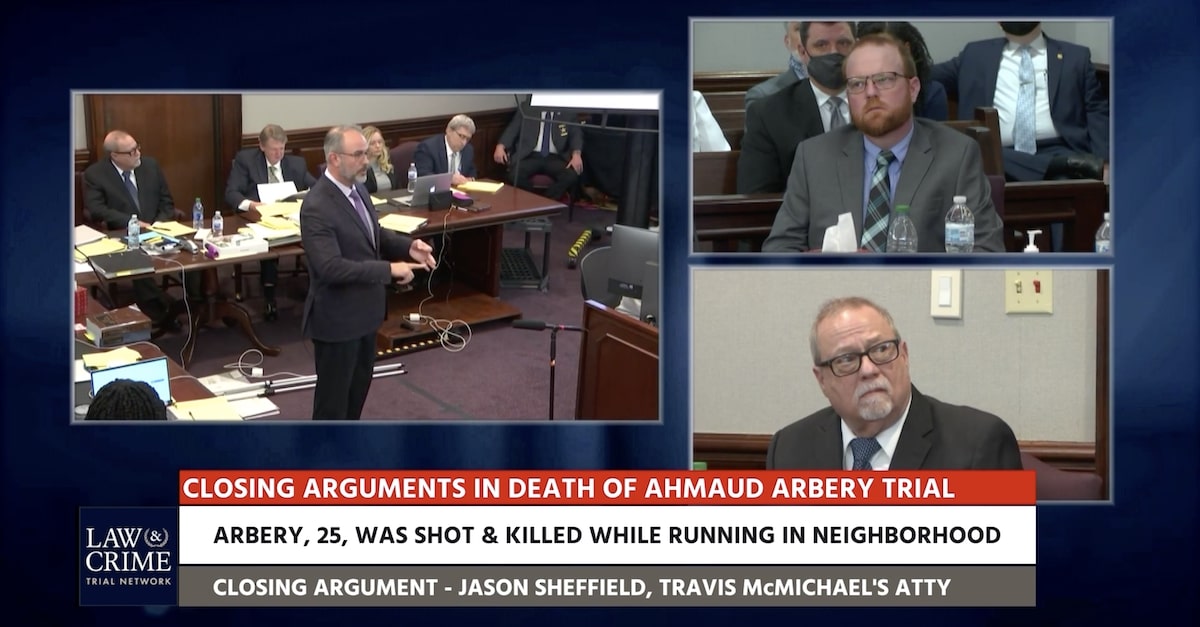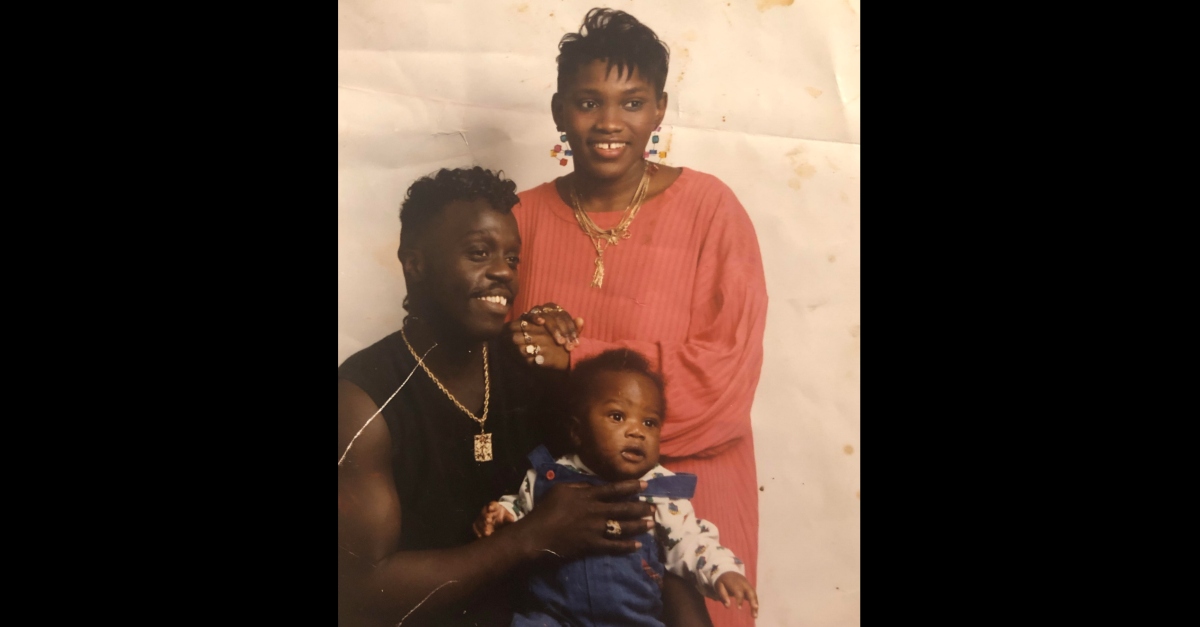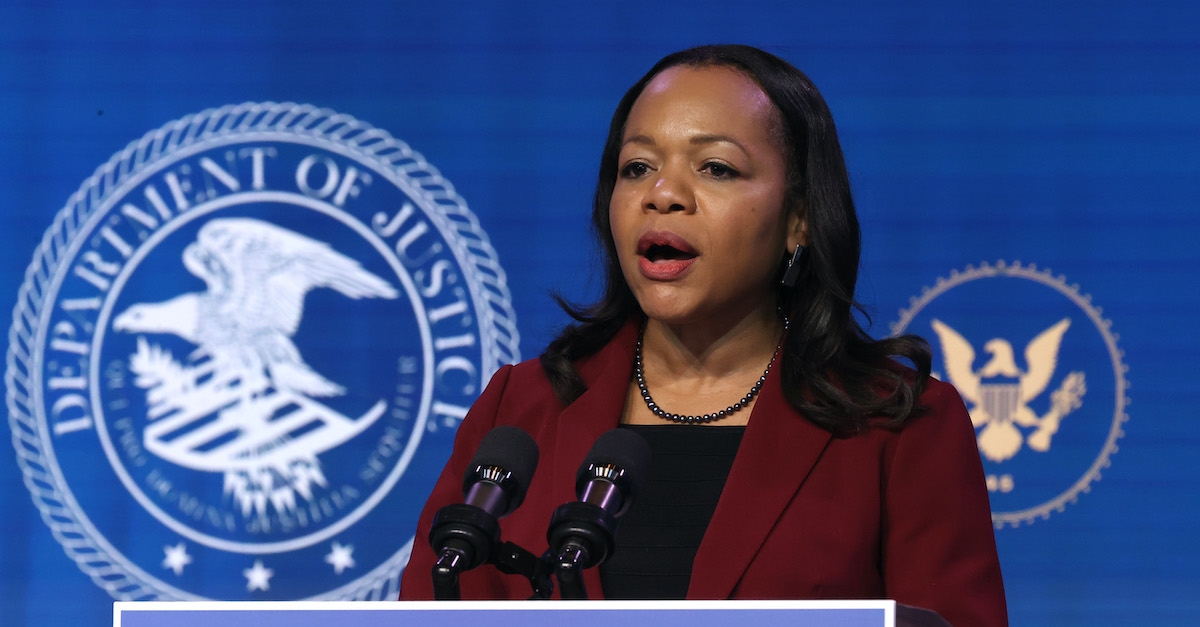
Listen to the full episode wherever you get your podcasts, and subscribe.
As Ahmaud Arbery’s murderers prepared to plead guilty to federal civil rights charges last week, two of the men appeared ready to tell a judge that they chased and killed a 25-year-old man because he was Black. Those admissions would have represented a long-delayed reckoning in a case that animated the racial justice movement globally and drew attention to what many described as a modern-day lynching in the Deep South.
Then, the deal fell apart, with Arbery’s family denouncing prosecutors for even contemplating such a plea agreement.
On the latest episode of Law&Crime’s podcast “Objections: with Adam Klasfeld,” prominent legal commentator Ken White—better known by the nom de plume Popehat—unpacks why that happened, what it means for the criminal justice reform movement and what to expect at the trial that began this week with jury selection.
“They’ve Suffered an Unspeakable Tragedy”
Underlying the family’s anger at the deal is the assumption that federal custody was too good for gunman Travis McMichael and his father Greg McMichael, who were prepared last week to acknowledge that their crimes were racially motivated.
“I don’t blame the family members on this at all,” White noted. “They’ve suffered an unspeakable tragedy. These three guys, basically, lynched their loved one on the street for no other reason than being Black in America.”
On Jan. 31, the McMichaels were prepared to acknowledge that they killed Arbery “because of [his] race and color,” a central element of the civil rights charge for which they were initially prepared to plead guilty. The plea agreements, however, would have allowed for them to serve the first 30 years of their current life sentences in federal rather than state custody. That led to emotional protests by Arbery’s mother Wanda Cooper–Jones and father Marcus Arbery.

Young Ahmaud Arbery with his father Marcus Arbery and mother Wanda Cooper-Jones
“What they really frankly said was that they didn’t want them to be in federal custody, because it was too nice, and one of them even said, because it’s not as dangerous as state custody, which is true,” White noted.
After U.S. District Judge Lisa G. Wood rejected the terms of the deal, the McMichaels opted to go to trial, which began with jury selection on Monday. The Arbery family’s attorney Lee Merritt said in a statement that the mother will not be attending the federal hate crimes trial, regarding it as irrelevant. The murder convictions mean that the McMichaels and their neighbor William “Roddie” Bryan will be serving life sentences in state prison, either way.
“It’s a win-win,” Merritt wrote.
Though an understandable sentiment, White said, it paints an inaccurate picture of what federal custody would have meant.
“Now, these three guys, if they do federal time, are going to do it in a high security facility,” he said. “It is not a ‘Club Fed’ you hear about. It’s not a prison camp. It is going to be a high security federal prison, and that is not by any stretch of the imagination lenient. It is, however, somewhat less horrifically bad than state prisons are.”
State prisons in the United States have higher incidents of rape, murder and substandard health care, and there is an irony to those in criminal justice reform movement championing that state of affairs in this instance, White noted.
“We really as Americans, we’re not sure what imprisonment is for,” he said. “I mean, theoretically, it’s supposed to be to punish, to deter, to incapacitate—so the person isn’t out there committing more crimes—and to rehabilitate. But really the only one of those that we’re really into are the incapacitation, and the punishment. And many people think that the purpose of punishment is to torture, to be as inhumane as possible, that that’s a feature and not a bug.”
There’s no theory of punishment accepted in law that accepts that—at least not “openly,” White noted.
“But when it comes down to it, everyone thinks it should be as hellish as possible, and I think a lot of those people thinking that have never really seen what a really hellish prison is like,” he added.
“This Bizarre Situation”
How state and federal authorities both came to prosecute Arbery’s murderers speaks to the tangled history of the case.
For months after Arbery’s murder on Feb. 25, 2020, local authorities in Georgia took no action. Arbery’s mother filed a federal lawsuit on the first anniversary of her son’s death accusing local police and prosecutors in Glynn County of perpetrating a cover-up. Brunswick Judicial Circuit District Attorney Jackie Johnson, who handled the initial investigation, was later charged criminally with violating her oath as an officer and obstructing an officer’s duties.
Georgia authorities only took action against Arbery’s killers after an attorney for Bryan leaked the footage, thinking that it would help the three men’s defense. Instead, it built public pressure for their prosecution.
Under the Department of Justice’s Petite policy—named after the 1960 Supreme Court case Petite v. United States—prosecutors should pursue federal prosecution when there is an interest not being met by a state.
“Well, here, it turned out that concern ultimately didn’t play out,” White said. “The federal interest was vindicated by the state prosecution, and so now, you have this bizarre situation, where people think that the federal prosecution, piling on additional set of charges, is going to result in too lenient treatment.”
The family’s attorney announced that Cooper-Jones wants to speak to Attorney General Merrick Garland about the federal prosecution of her son’s killers.

Kristen Clarke delivers remarks after being nominated to be civil rights division assistant attorney general by then-President-elect Joe Biden at The Queen theater Jan. 7, 2021 in Wilmington, Delaware. (Photo by Chip Somodevilla/Getty Images)
In fact, the official actually spearheading the prosecution is Assistant Attorney General Kristen Clarke, who recently became the first Black woman to head the Justice Department’s Civil Rights Division. Clarke previously blamed the Arbery family’s legal team for the miscommunication, claiming that their lawyer previously expressed openness toward a plea deal.
“It’s very politically difficult because the Justice Department can’t really come out and say, ‘Oh, we’re sorry, you’re right. Federal prison is too nice compared to state prison,'” White noted. “One option would be to drop it because the state interests have fully vindicated the concerns. These guys are going to prison for life. They were convicted of murder, but I don’t think that they feel they can do that politically, either.”
Meanwhile, federal prosecution carries its risks because proving racial motivations is more difficult than it may seem, especially when one needs to persuade a unanimous jury.
“So I think what they have to do is go try the best case they possibly can, hope they have no holdout jurors with racial issues or anything else, and then go for the longest sentence they can, and probably rely on the operation of various interstate federal compacts to let the state sentence go first,” he said.
The family’s attorney Lee Merritt did not respond to an interview request placed with his representative.
Listen to the podcast, below:
(Screenshot via the Law&Crime Network)
Have a tip we should know? [email protected]